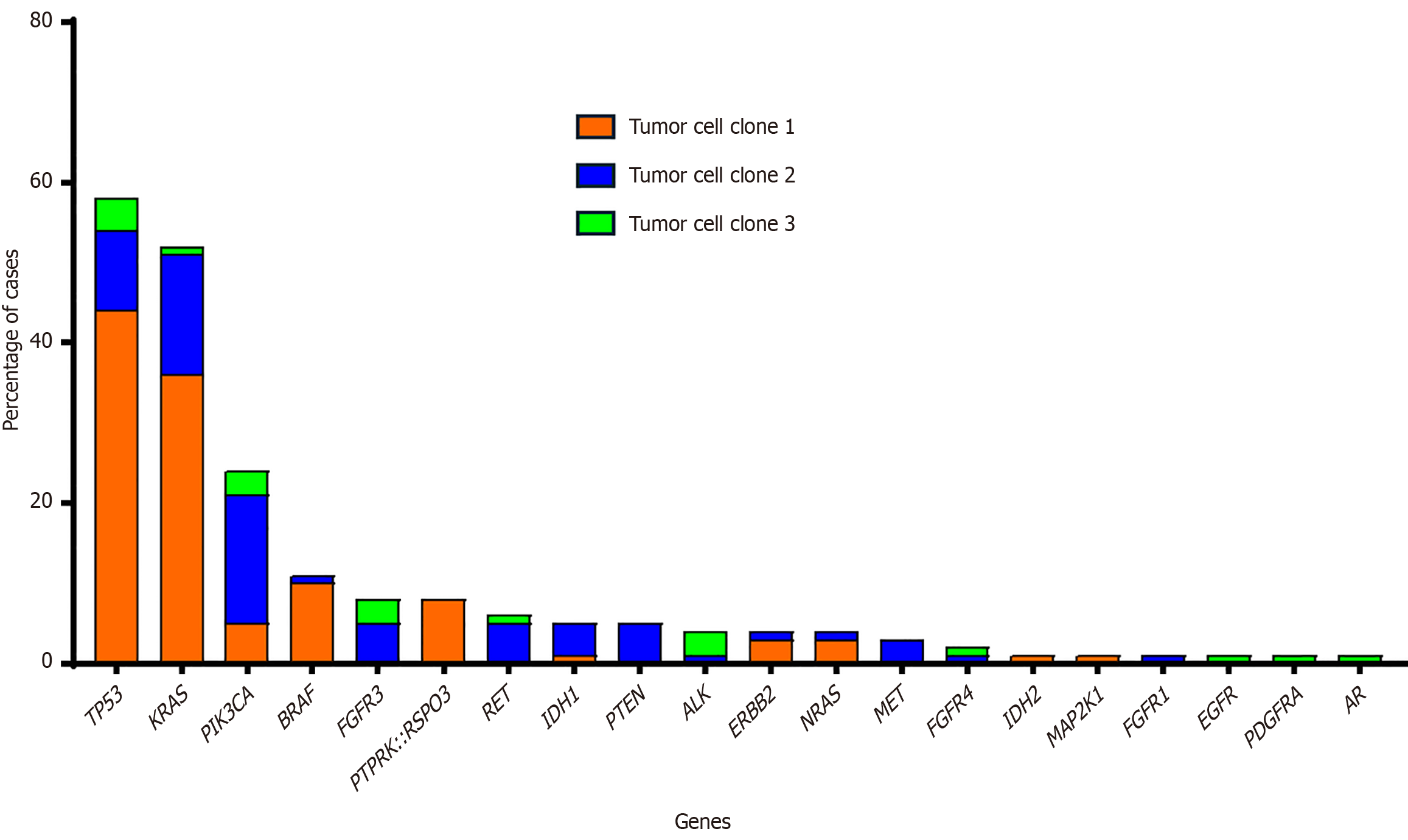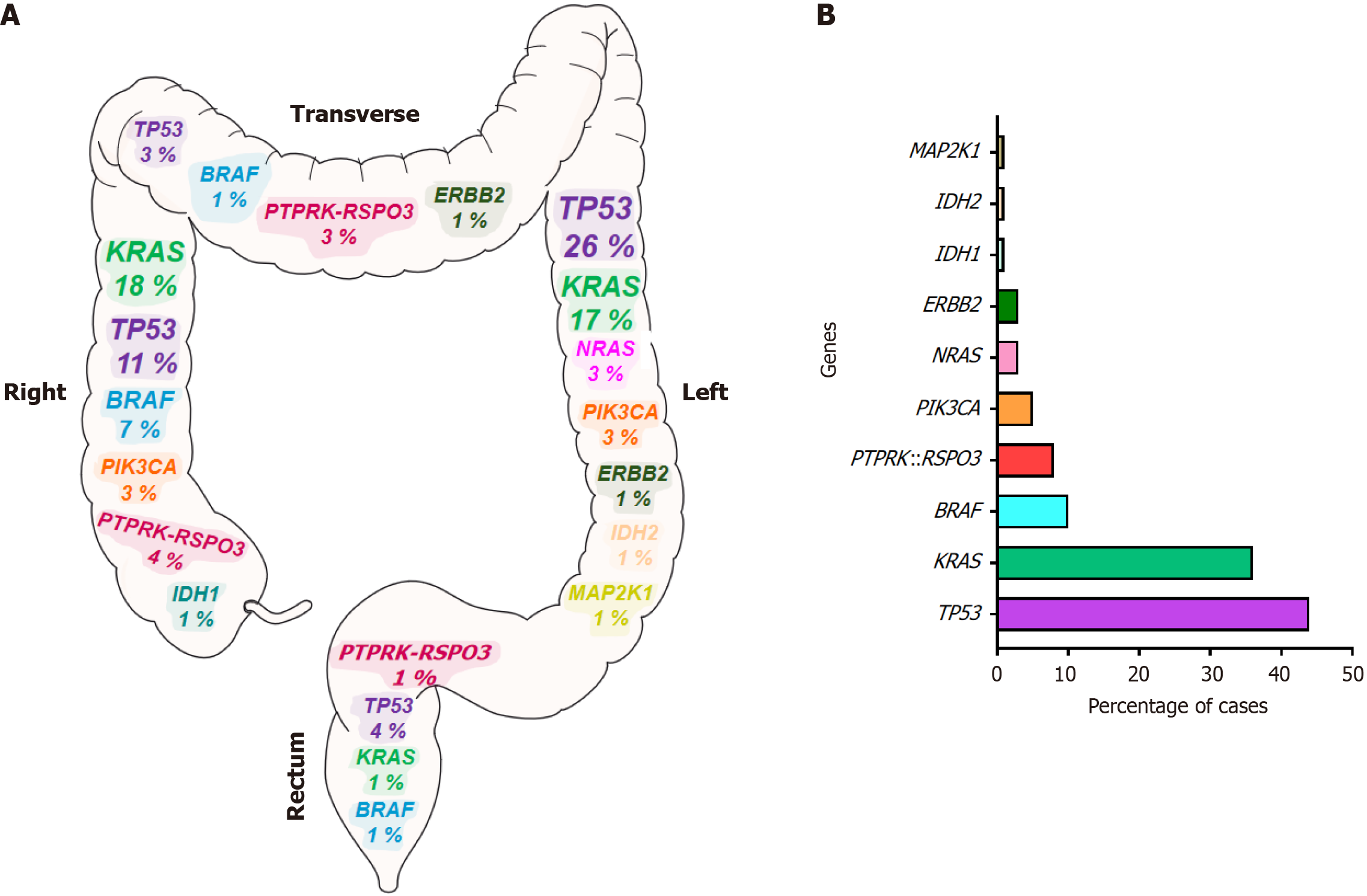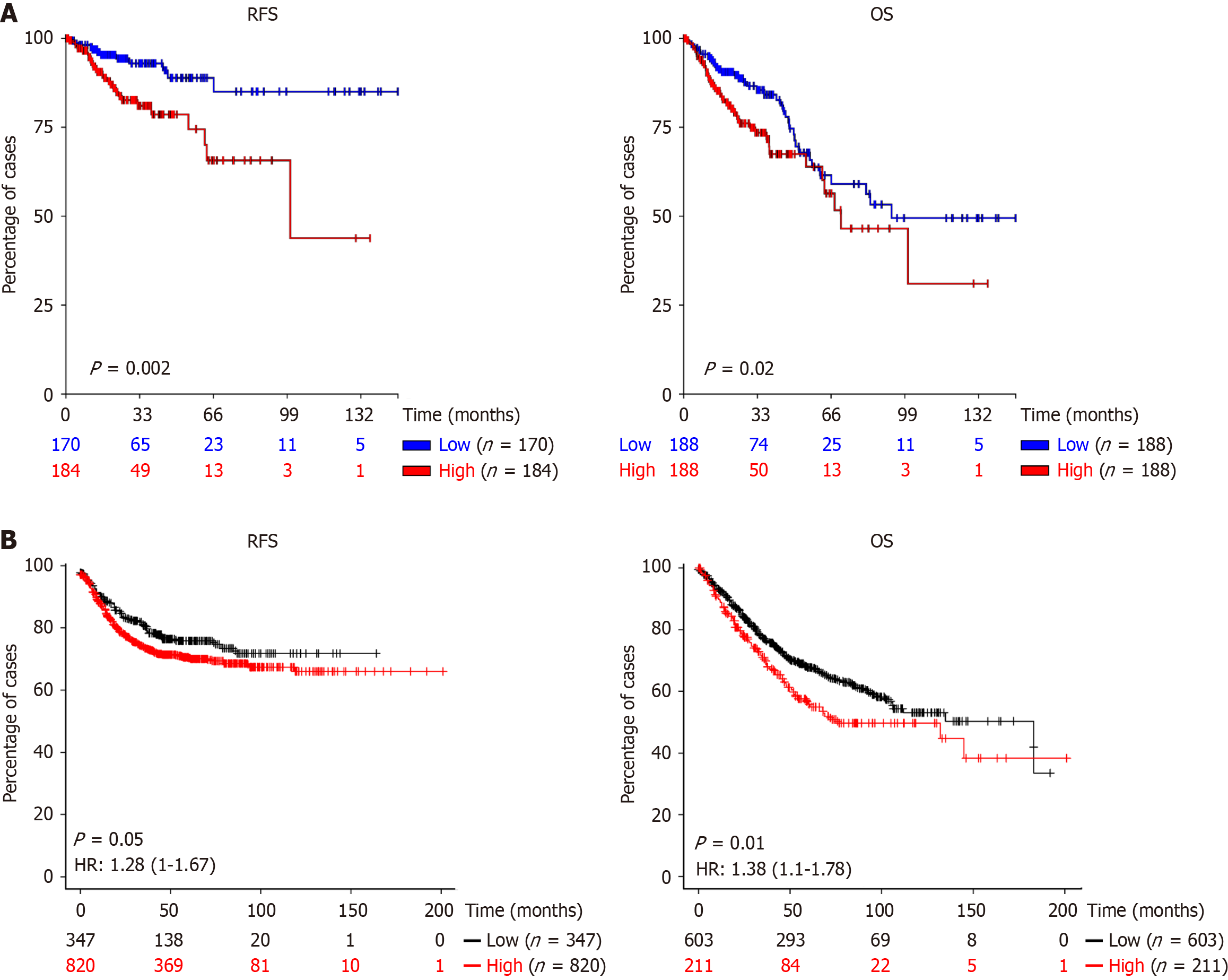©The Author(s) 2025.
World J Gastrointest Oncol. Nov 15, 2025; 17(11): 112838
Published online Nov 15, 2025. doi: 10.4251/wjgo.v17.i11.112838
Published online Nov 15, 2025. doi: 10.4251/wjgo.v17.i11.112838
Figure 1 The percentage of cases with primary, secondary, and tertiary genetic alterations for each of the genes identified by next-generation sequencing in primary tumor samples from 73 patients with advanced colorectal cancer.
TP53: Tumor protein p53; KRAS: Kirsten rat sarcoma viral oncogene homolog; PIK3CA: Phosphatidylinositol-4,5-bisphosphate 3-kinase catalytic subunit alpha; BRAF: B-Raf kinase; FGFR3: Fibroblast growth factor receptor 3; PTPRK: Protein tyrosine phosphatase receptor type k; RSPO3: R-spondin 3; RET: Rearranged during transfection; IDH1: Isocitrate dehydrogenase 1; PTEN: Phosphatase and tensin homolog deleted on chromosome ten; ALK: Anaplastic lymphoma kinase; ERBB2: Erythroblastic leukemia viral oncogene homolog 2; NRAS: Neuroblastoma RAS viral oncogene homolog; MET: Mesenchymal-epithelial transition factor; FGFR4: Fibroblast growth factor receptor 4; IDH2: Isocitrate dehydrogenase 2; MAP2K1: Mitogen-activated protein kinase 1; FGFR1: Fibroblast growth factor receptor 1; EGFR: Epidermal growth factor receptor; PDGFRA: Platelet-derived growth factor receptor alpha; AR: Androgen receptor.
Figure 2 Distribution of primary genetic alterations in advanced colorectal cancer by tumor location.
A: Frequency of specific primary genetic alterations (driver lesions) detected by next-generation sequencing in advanced colorectal cancer patients (n = 73), categorized by the location of the primary tumor; B: Bar graph showing the percentage of cases of each of the primary genetic alterations identified in a cohort of 73 patients with advanced colorectal cancer. TP53: Tumor protein p53; BRAF: B-Raf kinase; PTPRK: Protein tyrosine phosphatase receptor type k; RSPO3: R-spondin 3; ERBB2: Erythroblastic leukemia viral oncogene homolog 2; KRAS: Kirsten rat sarcoma viral oncogene homolog; NRAS: Neuroblastoma RAS viral oncogene homolog; PIK3CA: Phosphatidylinositol-4,5-bisphosphate 3-kinase catalytic subunit alpha; IDH2: Isocitrate dehydrogenase 2; MAP2K1: Mitogen-activated protein kinase 1; IDH1: Isocitrate dehydrogenase 1.
Figure 3 Impact of the R-spondin 3 expression on recurrence-free survival and overall survival in two independent series of colorectal cancer patients.
Kaplan-Meier plots showing recurrence-free survival and overall survival of colorectal cancer patients based on R-spondin 3 gene expression. A: Data from The Cancer Genome Atlas colon and rectal cancer cohort, analyzed using the UCSC Xena platform (https://xena.ucsc.edu); B: Data analyzed with the Kaplan-Meier Plotter tool (https://kmplot.com). P values and hazard ratios reported by each tool are shown. HR: Hazard ratio; RFS: Recurrence-free survival; OS: Overall survival.
- Citation: Tur R, Abad M, Filipovich E, Rivas MB, Rodriguez M, Montero JC, Sayagués JM. RSPO3 rearrangements in advanced colorectal cancer patients and their relationship with disease characteristics. World J Gastrointest Oncol 2025; 17(11): 112838
- URL: https://www.wjgnet.com/1948-5204/full/v17/i11/112838.htm
- DOI: https://dx.doi.org/10.4251/wjgo.v17.i11.112838















